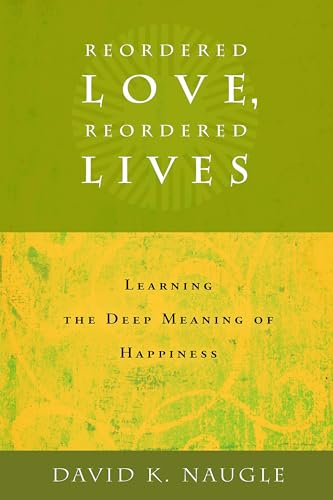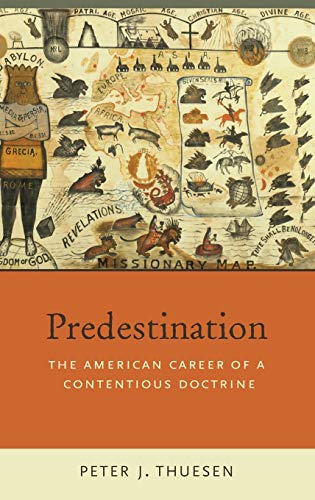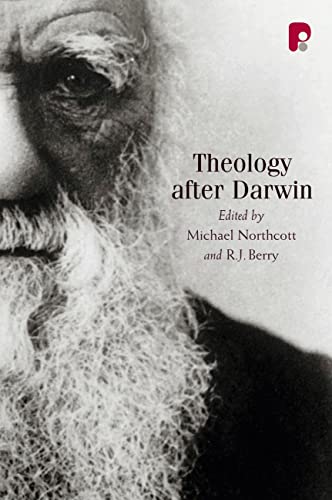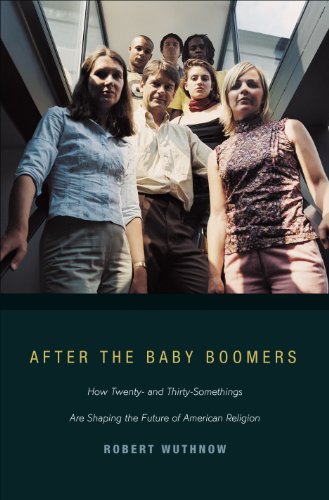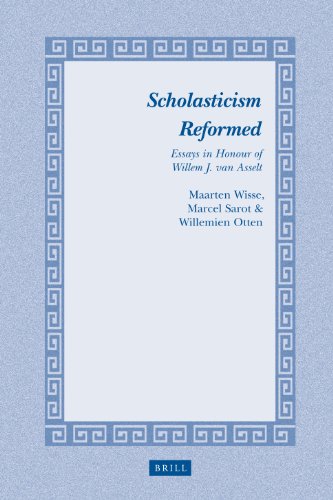The Great Theologians: A Brief Guide
Written by Gerald R. McDermott Reviewed By Peter Beck“Is there any way I can get a handy introduction to these theologians you and other pastors talk about all the time?” the business man asked Gerald McDermott. “All I want is a little handbook to give me the basics of each of these great theologians,” he added. “That’s why I wrote this book,” McDermott acknowledges in the introduction to The Great Theologians (p. 11).
To the uninitiated, the primary audience for this book, McDermott’s credentials will be unknown but not irrelevant. McDermott, professor of religion and philosophy at Roanoke College, has authored numerous works related to the Christian faith and history. In addition to several useful books on Jonathan Edwards, he has penned material on Mormon-evangelical dialogue, world religions, and a theological guide for cancer patients and their families. Additionally, McDermott serves as teaching pastor at St. John Lutheran Church. Taken together, his academic and clerical backgrounds make McDermott an able guide into the church’s past.
McDermott chose to include in this short volume eleven theologians from the Great Tradition, church history. He chose those who “had the most influence on the history of Christian thought” (p. 13):
- Origen: Oft-Reviled but “The Greatest Teacher after the Apostles”
- Athanasius: The Black Monk Who Saved the Faith
- Augustine: The Most Influential Theologian Ever
- Thomas Aquinas: The Teacher of the Catholic Church
- Martin Luther: The Monk Who Rose Up against Heaven and Earth
- John Calvin: Greatest Theologian of the Reformed Tradition
- Jonathan Edwards: America’s Theologian
- Friedrich Schleiermacher: Father of Liberal Theology
- John Henry Newman: Anglican Theologian Who Swam the Tiber
- Karl Barth: Most Influential Twentieth-Century Theologian
- Hans Urs von Balthasar: Stellar Catholic Theologian of the Twentieth Century
While some might complain that McDermott overlooks others worthy of inclusion—men like Leo the Great, Cranmer, Niebuhr, Henry—they cannot complain that his list is “too Catholic” or “too Protestant.” McDermott is very even-handed in his selection of influential theologians, introducing early church Fathers and Reformers, conservatives and liberals.
Each chapter provides a short biographical sketch of each man, detailing salient points of historical fact as well as mitigating factors that helped shape the man’s thought. Building on that skeleton, McDermott offers a glimpse of that thought, the theological framework within which each theologian worked. From there he then focuses on a theological theme unique to the theologian in question. McDermott helpfully concludes each chapter with what he believes to be helpful lessons the reader can and should learn from each theologian, lessons that do not always include embracing the theological contributions just sketched. Finally, each chapter concludes with a morsel from the theologian himself, a sample from one of his most important works.
Rather than sampling each of the eleven chapters here, we will consider two representative examples: Augustine and Schleiermacher. If the audience in mind has ever heard of either man, it would likely be the former. McDermott seems to understand that fact or at least assumes it. He provides little biographical detail concerning Augustine’s remarkable life except for his conversion, a surprising omission considering Augustine’s detailed and beloved Confessions. Nonetheless, McDermott rightly informs the reader of Augustine’s massive impact on the landscape of Christian history, noting his influence on many of theologians to follow. He then quickly walks the reader through fields of controversy traversed by Augustine: Manicheanism, the Donatists, and Pelagius. Theologically, McDermott highlights the centrality of human nature and sin in Augustine’s thought. The chapter closes with a selection from Augustine’s magnum opus, The City of God.
McDermott handles the chapter on Schleiermacher similarly. Whereas Augustine’s biography received less than a page that included an introduction to the man, McDermott gives the German theologian over two pages of introduction. Having set the historical stage, McDermott moves to Schleiermacher’s theology, identifying the feeling of absolute dependence as the keystone of this thought. Next, as he does in several chapters throughout the book, McDermott highlights the similarities and dissimilarities between Schleiermacher and Jonathan Edwards. His primary reason for doing so here is to illustrate the lengths to which Schleiermacher had gone in leaving orthodoxy. Finally, theologically, McDermott outlines Schleiermacher’s theological method and its resultant unorthodoxies: a faulty Christology, a novel view of God, and a view of Scripture that lacks the traditional understanding of inspiration. This chapter well illustrates the value of McDermott’s “What We Can Learn” from each theologian. For example, he argues, in Schleiermacher we have “an example of how not to do theology” (p. 145).
Overall this 200-page work offers a very readable, “short and accessible” introduction to some of the greatest minds the church has produced. To his credit, McDermott includes some of the best and some of the worst. He has done well to stick to his initial premise, providing an introduction, a brief guide, for those who want to know more about some of names often sprinkled in sermons for effect. He has given the church a handy tool for the uninitiated, a survey for the erstwhile novice. To that end The Great Theologians delivers on its promise. For that McDermott is to be commended and thanked.
For all of its good, however, a few possible negative responses might be leveled at McDermott’s newest book. The first and most obvious area of potential consternation is the list of theologians chosen for inclusion or exclusion. McDermott understands and expects such a response. To his credit, he anticipated such a complaint, acknowledging that others would wish to treat others from church history while ignoring some that he had covered. Even the number included in this volume, McDermott suggests, deals with such an argument. He reasons that eleven, rather than the biblical model of twelve, implies that the list is incomplete, leaving the door open for other theologians, possibly even a sequel to this book.
Along the same lines, many readers, those outside of McDermott’s target audience, people like informed pastors, interested laypeople, and professors may find the book handicapped by its intended brevity. Those who know a little about Jonathan Edwards want more than McDermott provides here. Those who’ve never heard of Balthasar might need more information to determine if he, among others, was the greatest Catholic theologian of the twentieth century and deserves to stand among the giant oaks in this book. Unfortunately, when one chooses to stay on the mountaintops of history, he must necessarily overlook the beauty and detail in the valleys below.
Take, for example, the chapter on Aquinas. McDermott has done a good job condensing the thirty-five volumes of the Summa down to eleven pages. The result, however, is necessarily an anemic view of Aquinas’ theology, a skeleton that betrays the depth of his thought. One glaring such instance that caught my eye was McDermott’s treatment of Aquinas’ use of Aristotle. The author does a wonderful job of pointing out this phenomenon, yet in a chapter that includes five pages dedicated to the sacraments, he never points out Aquinas’ use of Aristotelian categories to redefine and systematize the Catholic Church’s theology of transubstantiation. That the presence of Christ in the Supper receives such short shrift belies the importance of the issue in church history as a whole and in the lives of those theologians in the next two chapters, Luther and Calvin. Sometimes too much of a good thing can be problematic. Such is the case here with this volume’s brevity.
A larger complaint will likely be voiced by some concerning McDermott’s ecumenism. While he makes it clear throughout the book that he is a committed Protestant, his openness to Catholicism may provoke some. For example, McDermott acknowledges that he agrees with recent discussions between Catholics and Lutherans concerning the doctrine of justification and the resultant conclusion that both traditions believe the same thing. Likewise, in the chapter on Luther, he neither commends nor critiques recent Finnish Lutheran scholarship that argues that the Reformation as a revolution was theologically unnecessary based on Luther’s theology alone. While that may or may not be an accurate historical interpretation, the intended readership lacks the theological tools to recognize the merits of such an argument or to reject them. They depend upon the author to guide them through these waters. The uncritical inclusion of this thesis suggests that McDermott does and his reader should agree.
Further, along these same lines, in the chapter on Aquinas the author rightly includes the aforementioned discussion of the sacraments. Here, McDermott presents Thomas’s view of baptism over the course of three pages in a clear fashion, finally concluding, “there is a certain power in Thomas’s presentation of baptism” (p. 76), something that paedobaptists like himself would find appealing, but something credobaptists would find problematic. Again, the length of the work prohibits a careful theological dialogue on just this one doctrine. Yet McDermott’s treatment of the issue, whether right or wrong, will turn some off and perhaps lead others farther afield. Note, however, that to reject this highly useful book for McDermott’s ecumenism alone would be wrongheaded and unprofitable. Potential readers or those who will use this text in the classroom, however, should be aware of these issues ahead of time.
That said, strengths and potential weaknesses acknowledged, The Great Theologians successfully fulfills the author’s goal of providing untrained individuals a readable survey of the great minds in the Christian tradition. To that end, this book fills a very real need in many an erstwhile historian’s library. McDermott has given the intended reader a one-stop catalog of some of the great theologians in the Christian tradition, offering a taste of their lives and thought without gagging him with more detail than he can or desires to digest. This reviewer, for one, will serve it up to his undergraduate students as a side dish to other more substantive volumes in the future.
Peter Beck
Peter Beck
Charleston Southern University
Charleston, South Carolina, USA
Other Articles in this Issue
Most of us, I suspect, develop fairly standard ways, one might even say repetitive ways, to appeal to the motivations of our hearers when we preach the gospel...
How to Write—and How Not to Write—A Review: An Appreciative Response to Reviews of Ancient Near Eastern Themes in Biblical Theology by Dempster and Edgar
by Jeffrey J. NiehausI want to thank Themelios for the unusual opportunity to interact with two reviewers of my book Ancient Near Eastern Themes in Biblical Theology...
Parallels, Real or Imagined? A Review Article of Jeffrey J. Niehaus, Ancient Near Eastern Themes in Biblical Theology
by William EdgarWhen I came to Westminster Theological Seminary in Philadelphia as a young student in the 1960s, two things struck me...
Why Evangelicals Should Ignore Brian McLaren: How the New Testament Requires Evangelicals to Render a Judgment on the Moral Status of Homosexuality
by Denny BurkIn 2006 on Christianity Today’s leadership blog, Pastor Brian McLaren urged evangelical leaders to find a “Pastoral Response” to their parishioners on the issue of homosexuality...
A Member of the Family or a Stranger? A Review Article of Jeffrey J. Niehaus, Ancient Near Eastern
by Stephen DempsterWe cannot overstate how important knowing the context is for understanding the significance of any communication, whether that is a simple word, sentence, paragraph, larger text, sign, photograph, or cultural cue...



